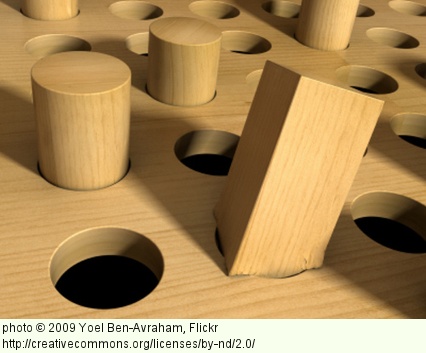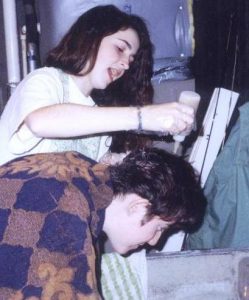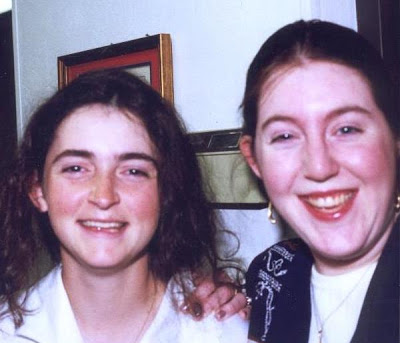
My favorite presentation while I was at Wild Goose was hosted by Jared Byas with Levi Weaver. They spoke on spiritual creativity, and as someone who fancies herself a bit of a creative, I was interested to hear their thoughts on that issue.
Jared’s talk and Levi’s performance were amazing, but one of the things that really struck me about them was that they both said that we had to get beyond cynicism if we wanted to create. They did not suggest that we could not experience seasons as a critic, but cautioned against setting up camp there because it is nearly impossible to create from that space because it can be just as limiting as the things that we’re cynical about. If we constantly put ourselves in the position of critic, the ability to see beauty diminishes and with it, the ability to project beauty with our art.
I didn’t realize how much I needed to hear this message.
I didn’t realize how much I need to have hope affirmed.
While my real life circles are primarily conservative, online I run with a fairly progressive crowd. The people who I interact with grew up in a Church culture that emphasized to they be in the world but not of it, but mostly meant not to really be in the world either. But we discovered that we related to God more through Alanis Morrissette than Darlene Zschech, more Kurt Cobain than Stephen Curtis Chapman. We joined AOL chat rooms and found out that the world was much bigger than our local church and that the scary people we were warned against weren’t all that different from us. We realized that the alternative to black and white wasn’t grey, but rather a stunning array of color.
As a result, we found ourselves in the role of critic. The status quo could no longer satisfy, the old answers no longer accepted at face value.
And our mantra changed. We became in the Church, but not of it.
But in the same way that they didn’t mean in the world, we didn’t really mean in the Church either.
Instead, we positioned ourselves as the new arbiters of what it meant to be Christian. We traded one form of judgment for another that fit us a bit more comfortably.
I have to be honest, though. Any kind of judgment starts to chafe after a while. This seat became hard, this robe confining. Being on the outside is lonely, even if there are others there, because really, everyone is suspect.
Last week, Tina and I were talking about how we need to absorb the shock waves that result from the loss of power. How do we take something that is hurtful and potentially harmful and lessen the impact? She asked how we become Antoinette Tuffs in those situations.
As I listened again to the 911 tape of a woman talking down a shooter at a Georgia school, what struck me about her was that rather that placing herself as the shooter’s critic, Tuff came alongside him and found commonalities between them. She acknowledged her own hurts and disappointments. She showed compassion, even when it was a risky.
This is what I want. Not to be on the outside, but to be in the midst. I want to be one who sees the humanity of people, even when we disagree; even when there could be some cost. I want to surround myself with people who acknowledge pain, but search for beauty, and when they can’t find it, create it themselves.
I don’t simply want to say that I’m in the Church, I actually want to be in the Church.







